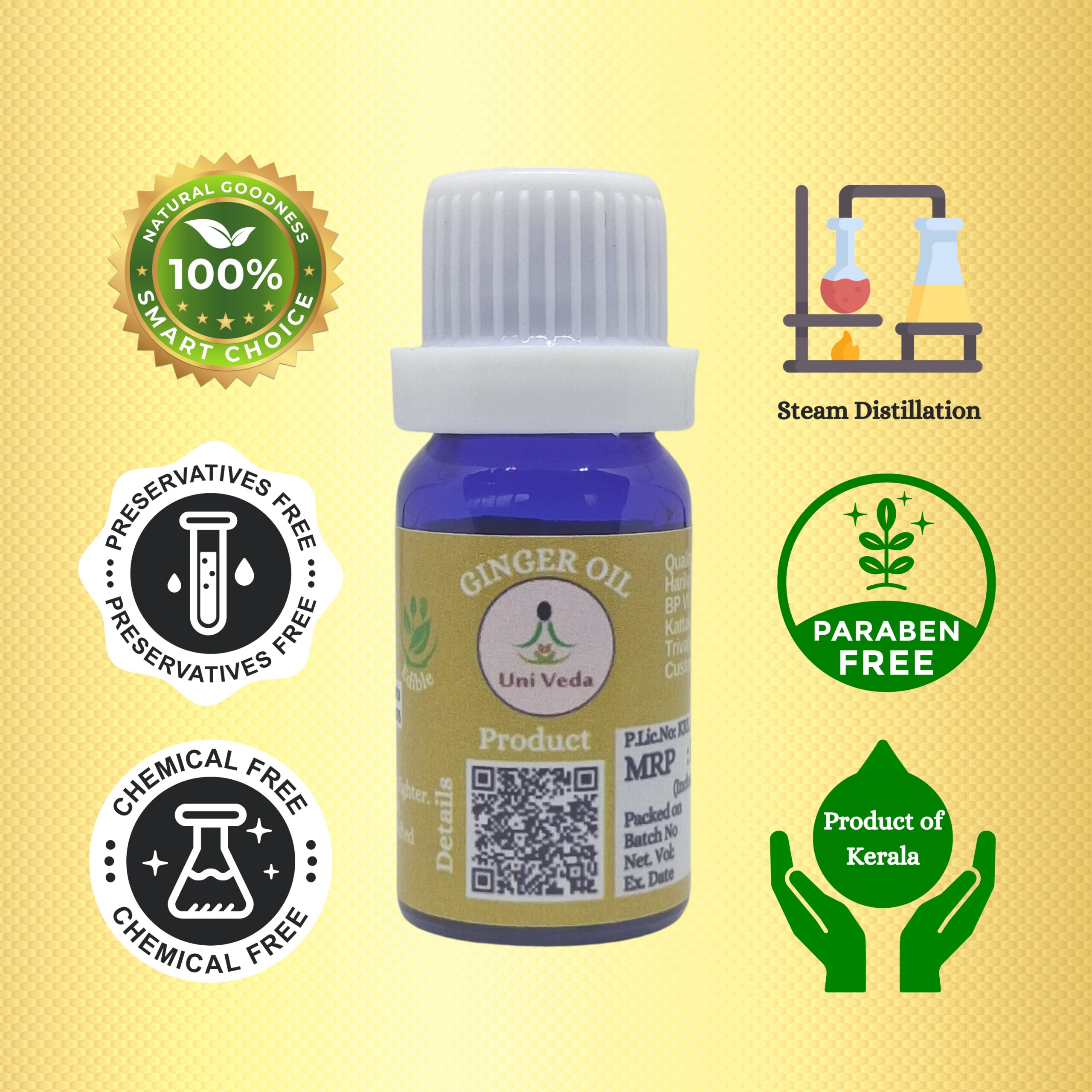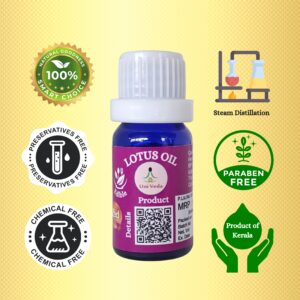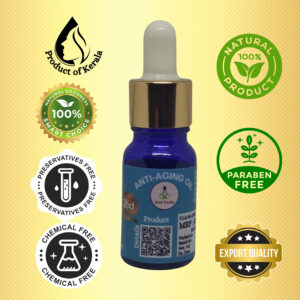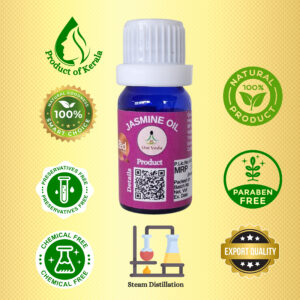OVERVIEW
Unlock the Secrets of Ginger Essential Oil: Your Ultimate Guide
Ginger essential oil isn’t just another bottle on the shelf—it’s a fiery elixir that’s been spicing up health and wellness routines for thousands of years. Extracted from the rhizome of the Zingiber officinale plant, this potent oil packs a punch of benefits that go far beyond its warm and spicy aroma.
A Rich History Rooted in Tradition
Originating from Southeast Asia, ginger has been a staple in traditional Chinese and Ayurvedic medicine. Ancient sailors used it to combat seasickness, while healers prized it for its ability to ignite the body’s natural healing processes. Today, ginger essential oil continues to be a go-to remedy for those in the know.
BENEFITS
Ginger Essential Oil: Your Spicy Secret to Wellness
Ginger essential oil isn’t just another item on the aromatherapy shelf—it’s a powerhouse with a punch that can revolutionize your wellness game. Extracted from the roots of the Zingiber officinale plant, this fiery oil has been a staple in traditional medicine for centuries, and it’s making a bold comeback.
Unlocking the Benefits of Ginger Essential Oil
1. Digestive Dynamo
Let’s be real—nobody enjoys that uncomfortable bloated feeling after a meal. Ginger essential oil is your gut’s best friend. Its natural compounds stimulate saliva, bile, and gastric juices, helping your digestive system break down food more efficiently. A few diluted drops massaged onto your abdomen can work wonders for indigestion and nausea.
2. Natural Inflammation Fighter
Sore muscles after that intense workout? Joint discomfort acting up? Ginger oil’s anti-inflammatory properties come to the rescue. Rich in gingerol, it helps reduce inflammation and soothe pain. Incorporate it into your massage routine, and your muscles will thank you.
3. Immune System Boost
In a world where we’re constantly fighting off germs, ginger essential oil steps up as a defender of your immune system. Its antioxidant qualities combat free radicals, while its antimicrobial properties help fend off common illnesses. Diffusing it in your space can give your body’s defenses that extra edge.
4. Mental Clarity and Uplifted Mood
Feeling the afternoon slump? The invigorating aroma of ginger oil can revitalize your senses. It promotes feelings of confidence and courage—perfect for when you need that extra push. Inhaling it can help reduce feelings of stress and anxiety, clearing mental fog and enhancing focus.
5. Respiratory Relief
Stuffy nose ruining your day? Ginger essential oil acts as an expectorant, helping to relieve congestion and sinusitis. A steam inhalation with a few drops can open up your airways and make breathing a breeze.
GUIDE
Ginger Essential Oil: 7 Innovative Ways to Elevate Your Wellness
Ginger essential oil isn’t just a fiery addition to your aromatherapy collection—it’s a versatile powerhouse waiting to revolutionize your daily routine. Derived from the roots of the Zingiber officinale plant, this potent oil has been cherished for centuries, and it’s time you unleashed its full potential.
1. Aromatherapy Elevation
Diffuse for Clarity and Energy
Transform your living space into an oasis of warmth and focus by adding a few drops of ginger essential oil to your diffuser. Its invigorating aroma not only fills the room with a spicy, uplifting scent but also helps enhance concentration and reduce feelings of stress. It’s like a breath of fresh inspiration whenever you need a mental boost.
2. Soothing Massage Companion
Relieve Muscle Tension Naturally
After a long day or an intense workout, your muscles crave relief. Create a soothing massage oil by diluting ginger essential oil with a carrier oil such as coconut or jojoba oil. Gently massage it into sore muscles and joints to tap into its natural anti-inflammatory and analgesic properties. Say goodbye to aches and hello to relaxation.
3. Invigorating Bath Elixir
Rejuvenate Body and Mind
Upgrade your bath time by adding 5-6 drops of ginger essential oil to warm bathwater. Pair it with Epsom salts for an added detoxifying effect. This aromatic soak stimulates circulation, eases muscle stiffness, and leaves your skin feeling revitalized. It’s the perfect remedy to melt away stress and invigorate your senses.
4. Steam Inhalation Therapy
Breathe Easier
Combat congestion and respiratory discomfort with ginger’s natural expectorant qualities. Add a couple of drops to a bowl of hot water, drape a towel over your head, and inhale the steam deeply. This method helps clear nasal passages, reduce sinus congestion, and provides relief from cold symptoms.
5. Skincare Booster
Illuminate Your Complexion
Ginger essential oil can be a game-changer for your skincare regimen. Its antioxidant properties fight free radicals, promoting a youthful glow and even skin tone. Mix a drop or two into your moisturizer or facial serum to help reduce the appearance of scars, blemishes, and hyperpigmentation. Always perform a patch test to ensure compatibility with your skin.
6. Hair Care Hero
Stimulate Growth and Shine
Add life back into dull hair by incorporating ginger essential oil into your hair care routine. Mix a few drops with your shampoo or conditioner to stimulate scalp circulation, promote healthy hair growth, and combat dandruff. The result? Stronger, shinier locks that turn heads.
7. Digestive Aid
Soothe an Upset Stomach
Ease digestive discomfort naturally by using ginger essential oil for abdominal massage. Dilute a few drops with a carrier oil and gently massage your stomach in a clockwise motion. This can help alleviate indigestion, bloating, and nausea. It’s a time-tested remedy that taps into ginger’s carminative properties.
Frequently Asked Questions (FAQs)
1. What Is Ginger Essential Oil and How Is It Made?
Answer: Ginger essential oil is extracted from the rhizome (root) of the Zingiber officinale plant through steam distillation. This process concentrates the plant’s beneficial compounds, resulting in a potent oil rich in bioactive components like gingerol and zingiberene. The oil captures the warm, spicy, and invigorating essence of ginger in its purest form.
2. What Are the Primary Benefits of Ginger Essential Oil?
Answer: Ginger essential oil offers a wide array of health and wellness benefits:
- Digestive Support: Aids in relieving indigestion, nausea, and abdominal discomfort.
- Anti-Inflammatory Properties: Helps reduce muscle pain, joint stiffness, and inflammation.
- Immune System Boost: Contains antioxidants that strengthen the body’s defenses against common illnesses.
- Mental Clarity and Mood Enhancement: Alleviates stress, promotes feelings of confidence, and improves focus.
- Respiratory Aid: Acts as an expectorant, easing coughs and congestion.
3. How Can I Use Ginger Essential Oil Safely?
Answer: Ginger essential oil can be used in several ways:
- Aromatherapy: Add a few drops to a diffuser to inhale the invigorating scent.
- Topical Application: Dilute with a carrier oil (like coconut or jojoba oil) before applying to the skin. It can be massaged onto sore muscles or joints.
- Bath Enhancement: Incorporate into bathwater for a relaxing soak.
- Steam Inhalation: Add to hot water and inhale the steam for respiratory relief.
Safety Tips:
- Dilution: Always dilute before topical use to prevent skin irritation.
- Patch Test: Conduct a patch test to check for allergic reactions.
- Consultation: Seek advice from a healthcare professional if pregnant, nursing, or dealing with medical conditions.
4. Can Ginger Essential Oil Be Ingested?
Answer: While ginger is commonly consumed in culinary contexts, ginger essential oil is highly concentrated. Ingesting essential oils is generally not recommended without the guidance of a qualified aromatherapist or healthcare provider. If you consider internal use, ensure the oil is food-grade and consult a professional.
5. Does Ginger Essential Oil Help with Nausea and Digestive Issues?
Answer: Yes, ginger essential oil is renowned for its digestive benefits. Its carminative properties can alleviate nausea, motion sickness, and general stomach discomfort. Inhaling the aroma or applying diluted oil to the abdomen in a gentle massage can provide relief.
6. Is Ginger Essential Oil Effective for Pain and Inflammation?
Answer: Absolutely. The anti-inflammatory components in ginger oil, such as gingerol, make it effective in reducing inflammation and easing pain associated with arthritis, muscle aches, and headaches. Topical application of diluted oil to the affected area can help alleviate symptoms.
7. Can Ginger Essential Oil Improve Hair and Skin Health?
Answer: Yes, ginger essential oil can benefit both hair and skin:
- Hair: Stimulates scalp circulation, promoting hair growth and combating dandruff. Add a few drops to your shampoo or conditioner.
- Skin: Its antioxidant properties help reduce signs of aging, improve skin tone, and may diminish the appearance of scars. Mix a drop into your moisturizer, ensuring proper dilution.
8. How Does Ginger Essential Oil Affect Mood and Energy Levels?
Answer: The invigorating scent of ginger essential oil can enhance mood by reducing feelings of stress, anxiety, and fatigue. It promotes a sense of confidence and alertness. Diffusing the oil or inhaling directly from the bottle can provide an immediate uplift.
9. What Oils Blend Well with Ginger Essential Oil?
Answer: Ginger essential oil pairs wonderfully with several other essential oils:
- Citrus Oils: Lemon, orange, and bergamot enhance its uplifting properties.
- Spicy Oils: Cinnamon and clove create a warm, comforting blend.
- Floral Oils: Rose and ylang-ylang balance the spice with soothing floral notes.
- Woodsy Oils: Sandalwood and cedarwood add depth and grounding effects.
10. Are There Any Side Effects or Contraindications?
Answer: When used properly, ginger essential oil is generally safe. Potential side effects may include skin irritation or allergic reactions if not diluted correctly. Always:
- Avoid Excessive Use: Stick to recommended amounts.
- Stay Away from Sensitive Areas: Do not apply near eyes or mucous membranes.
- Consult a Professional: Especially important for pregnant or breastfeeding women and individuals on medication.
11. How Should I Store Ginger Essential Oil?
Answer: To maintain its potency:
- Cool, Dark Place: Store the oil in a dark glass bottle away from direct sunlight and heat.
- Secure Lid: Ensure the cap is tightly closed to prevent oxidation.
- Shelf Life: When stored properly, it can last up to two years.
12. Can Ginger Essential Oil Help with Respiratory Issues?
Answer: Yes, ginger essential oil can assist with respiratory problems. Its expectorant properties make it effective in loosening phlegm and clearing the respiratory tract. Using it in steam inhalation or diffusing it can alleviate symptoms of colds, coughs, and sinusitis.
13. Is Ginger Essential Oil Suitable for Children?
Answer: Caution is advised when using essential oils with children. Ginger oil is potent and may not be appropriate for young children. Always consult a qualified healthcare provider before using it on or around children, and ensure dilution rates are adjusted for their sensitivities.
14. How Does Ginger Essential Oil Compare to Fresh Ginger?
Answer: While both share similar properties, ginger essential oil is much more concentrated than fresh ginger. The oil contains higher levels of certain compounds, making it more potent for topical and aromatic uses. However, fresh ginger remains a staple in cooking and internal remedies, offering dietary benefits not obtained from the oil.
15. Can Ginger Essential Oil Support Weight Loss Efforts?
Answer: Ginger essential oil may aid weight loss indirectly by:
- Boosting Metabolism: Stimulating digestion and enhancing metabolic functions.
- Suppressing Appetite: The scent may reduce cravings.
- Increasing Energy Levels: Promoting vitality, which can encourage physical activity.
It’s important to combine its use with a healthy diet and exercise for effective results.
16. Is Ginger Essential Oil Environmentally Sustainable?
Answer: Sustainability depends on the sourcing practices of the manufacturer. Opt for brands that:
- Support Ethical Farming: Partner with farmers who employ sustainable cultivation methods.
- Promote Fair Trade: Ensure fair compensation for growers.
- Use Eco-Friendly Practices: Emphasize minimal environmental impact during production.
17. Can I Use Ginger Essential Oil for Aromatic Cooking?
Answer: While ginger essential oil is highly concentrated, food-grade varieties can be used sparingly in cooking to add intense ginger flavor. Ensure the oil is safe for internal use and start with a tiny amount (often just a toothpick dip) to avoid overpowering the dish.
18. What Are the Historical Uses of Ginger Essential Oil?
Answer: Historically, ginger has been a cherished remedy:
- Traditional Medicine: Used in Ayurveda and Chinese medicine for digestive and respiratory issues.
- Maritime Use: Sailors utilized it to prevent seasickness.
- Cultural Rituals: Employed in ceremonies for its invigorating properties.
19. Are There Any Scientific Studies Backing the Benefits of Ginger Essential Oil?
Answer: Yes, research has explored ginger oil’s effects:
- Anti-Inflammatory: Studies indicate its components can reduce inflammation markers.
- Antioxidant: Research shows it has significant antioxidant capacity.
- Digestive Aid: Clinical trials support its effectiveness in alleviating nausea.






Reviews
There are no reviews yet.